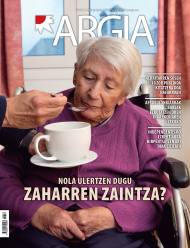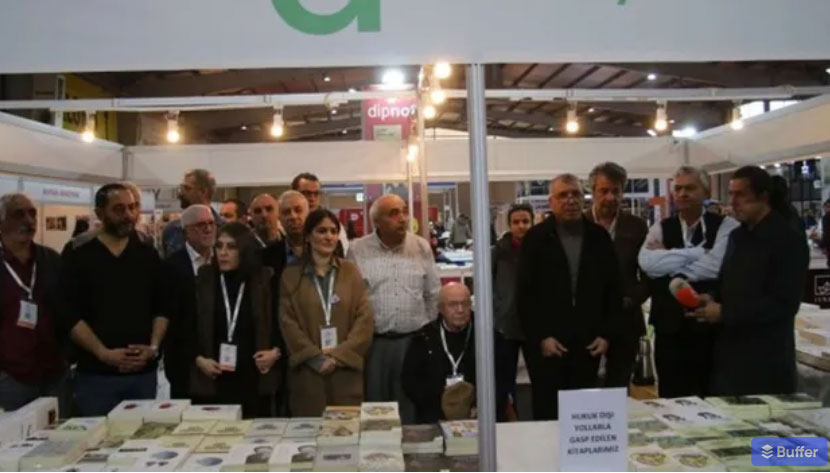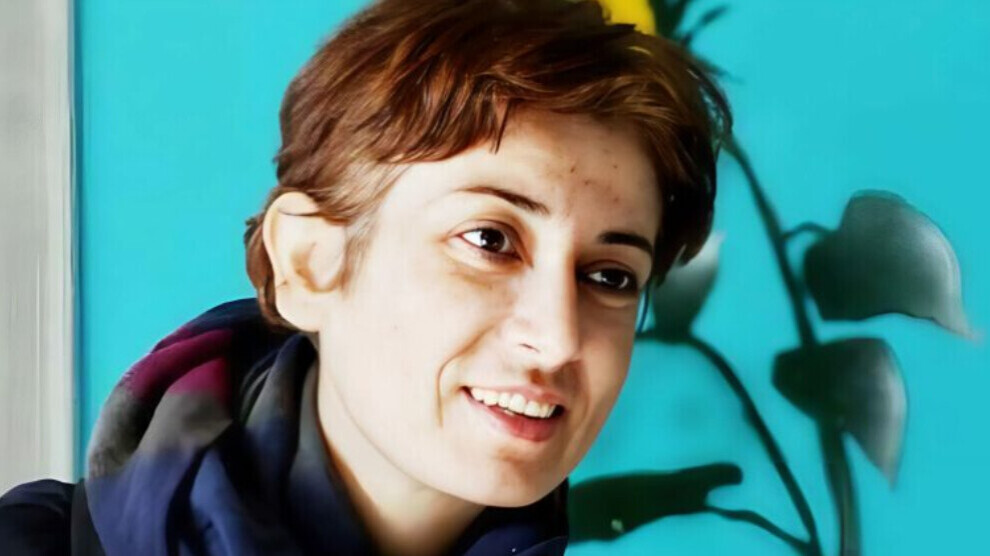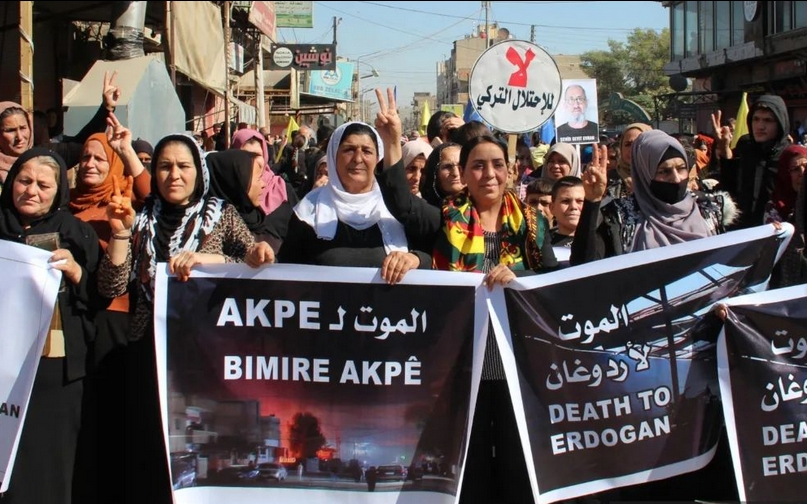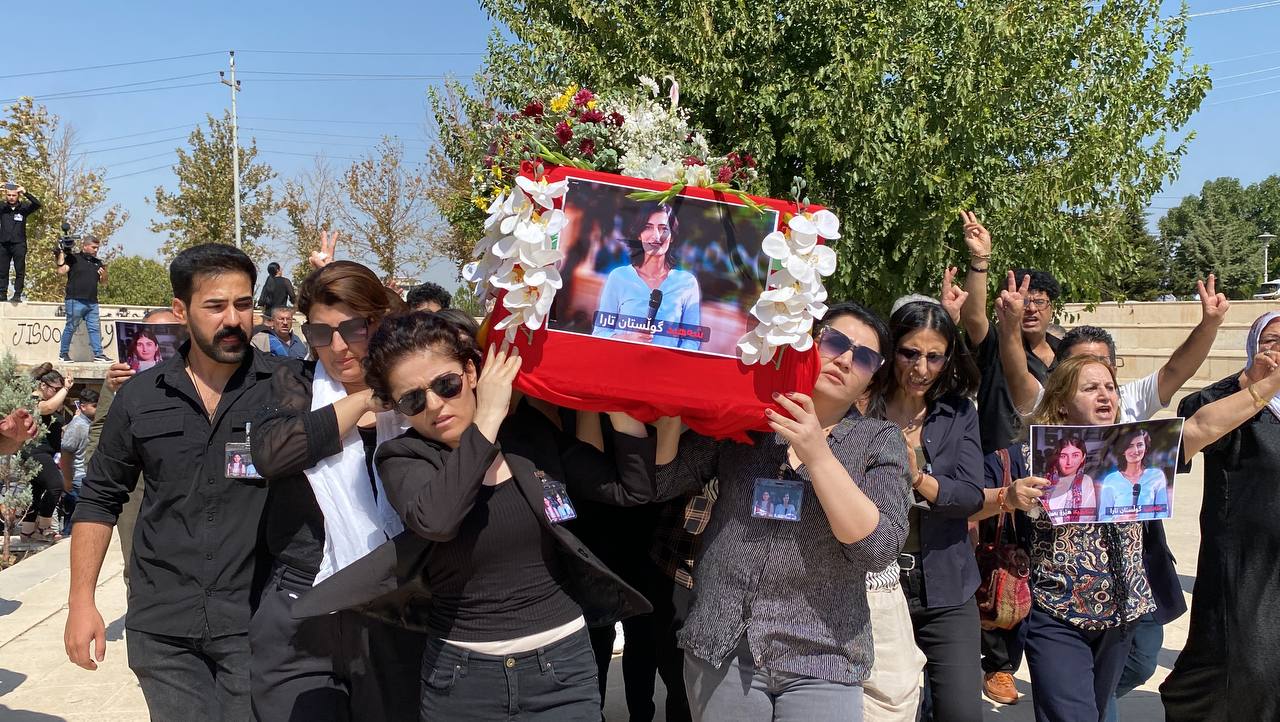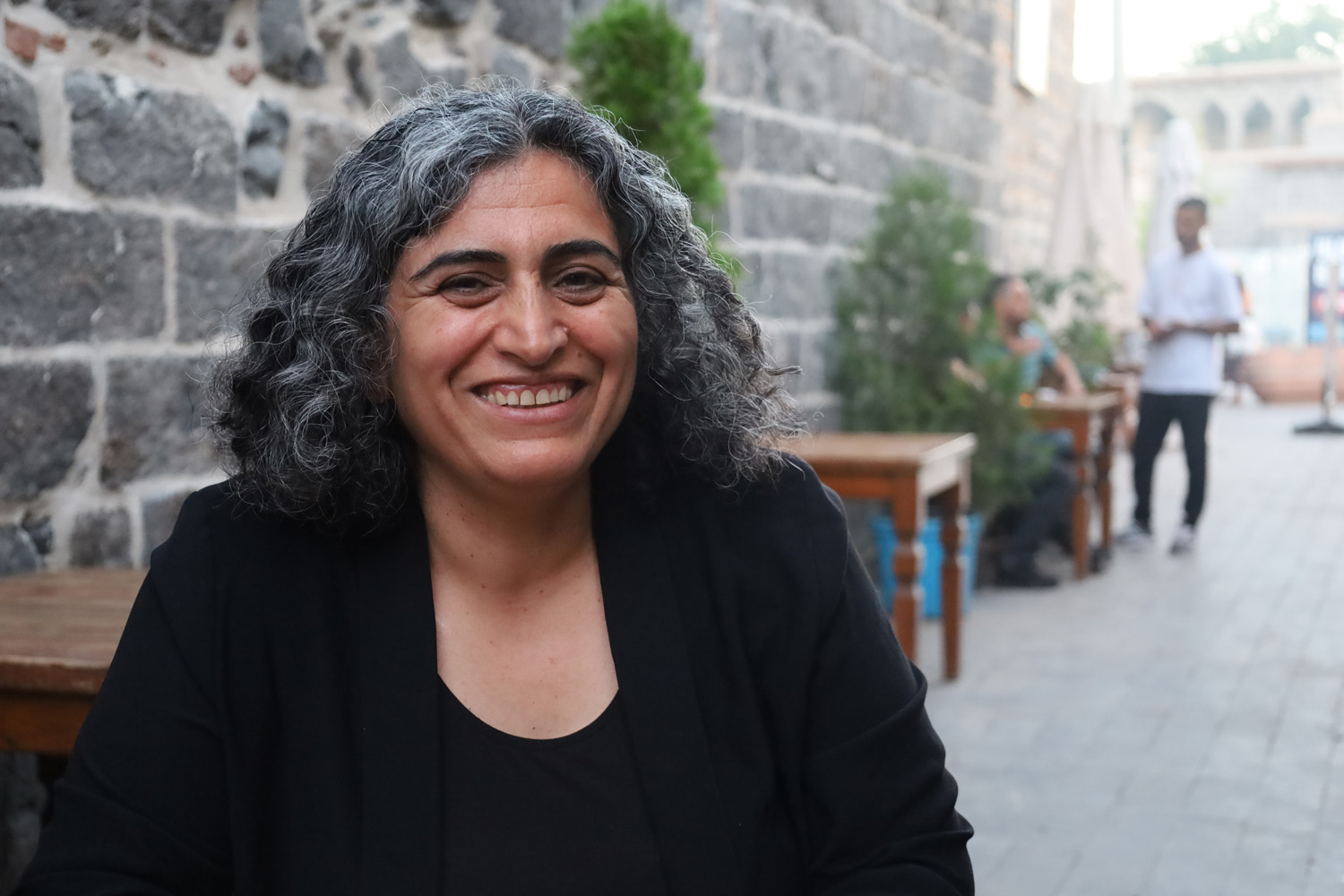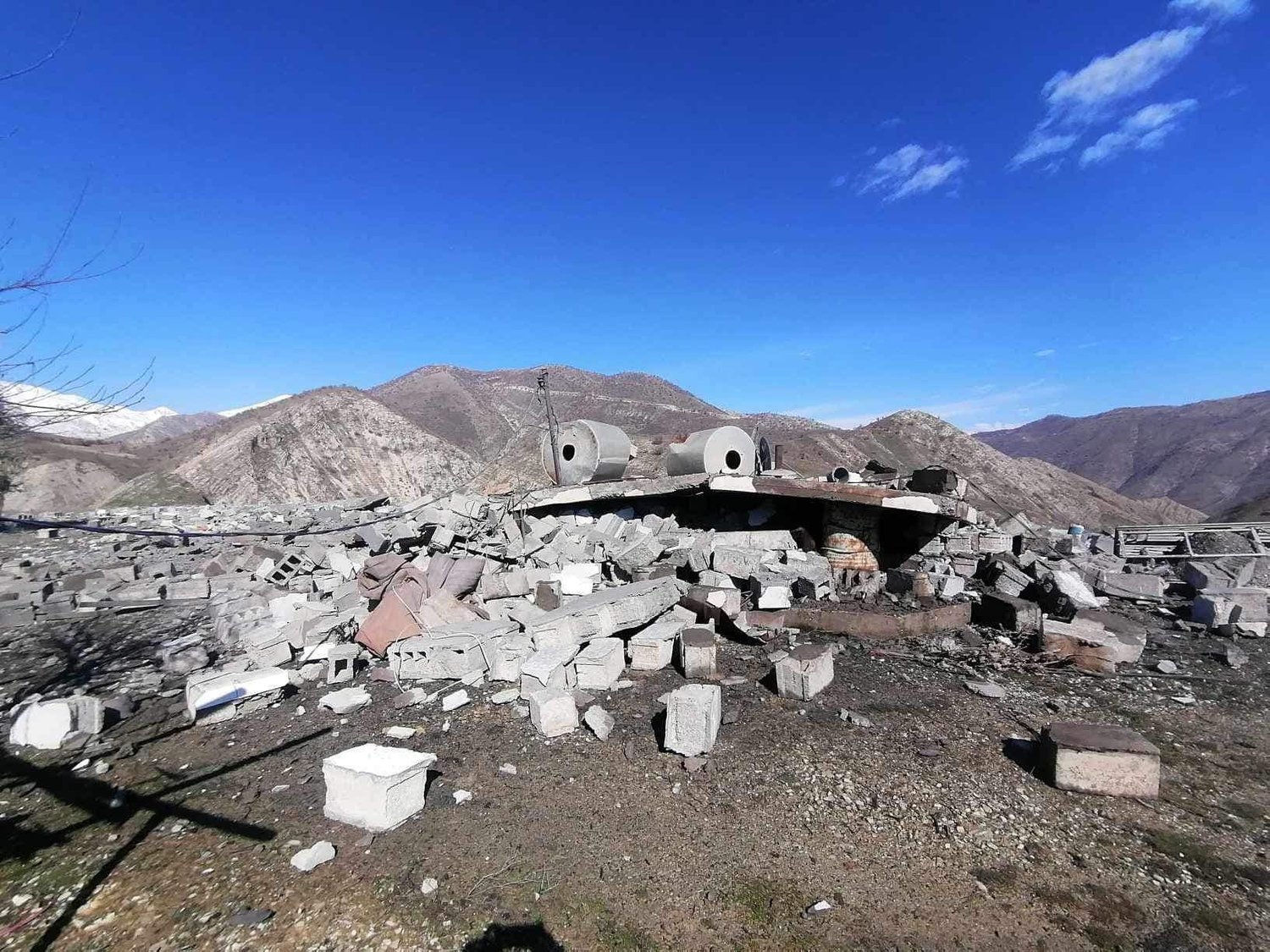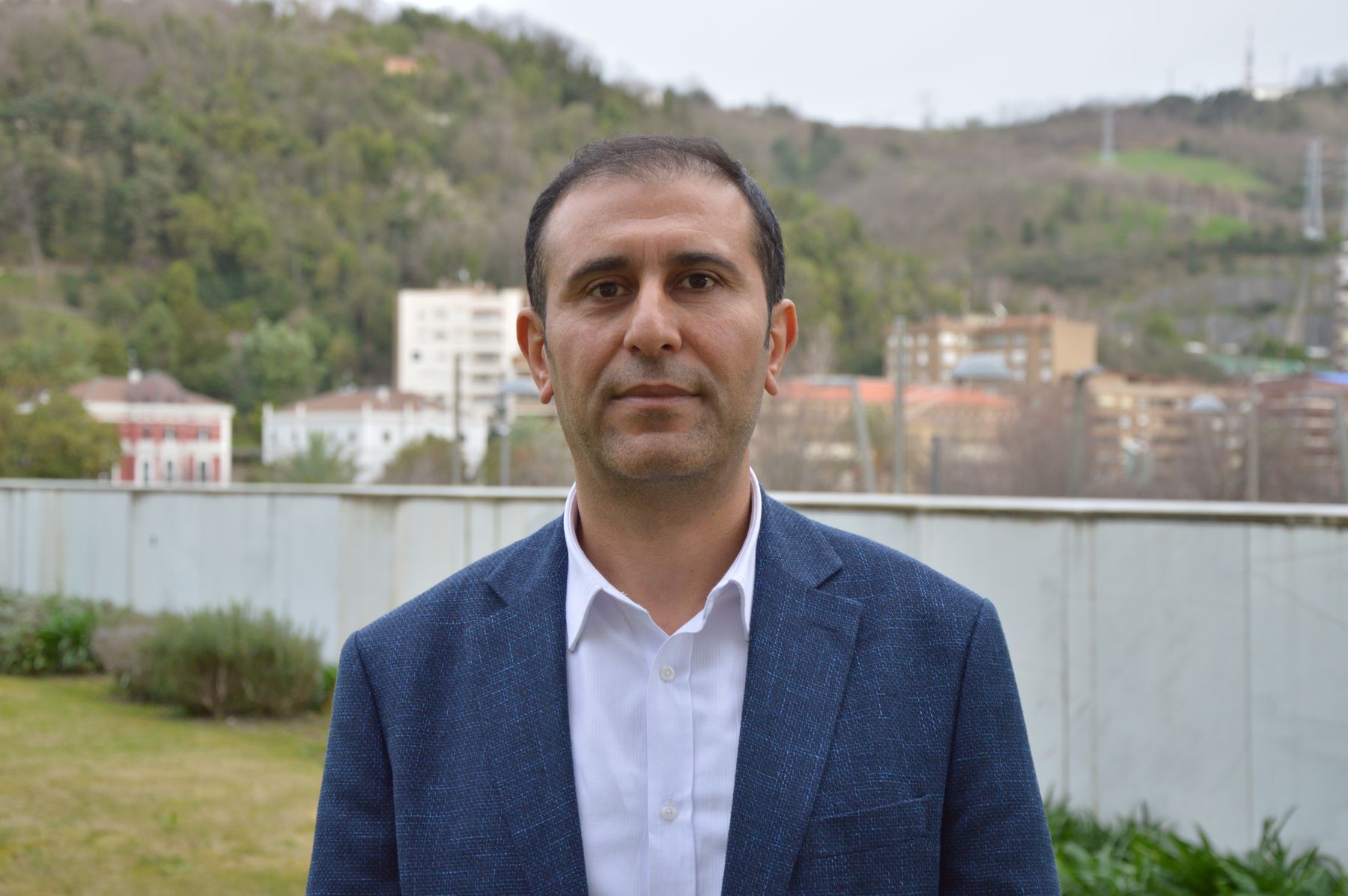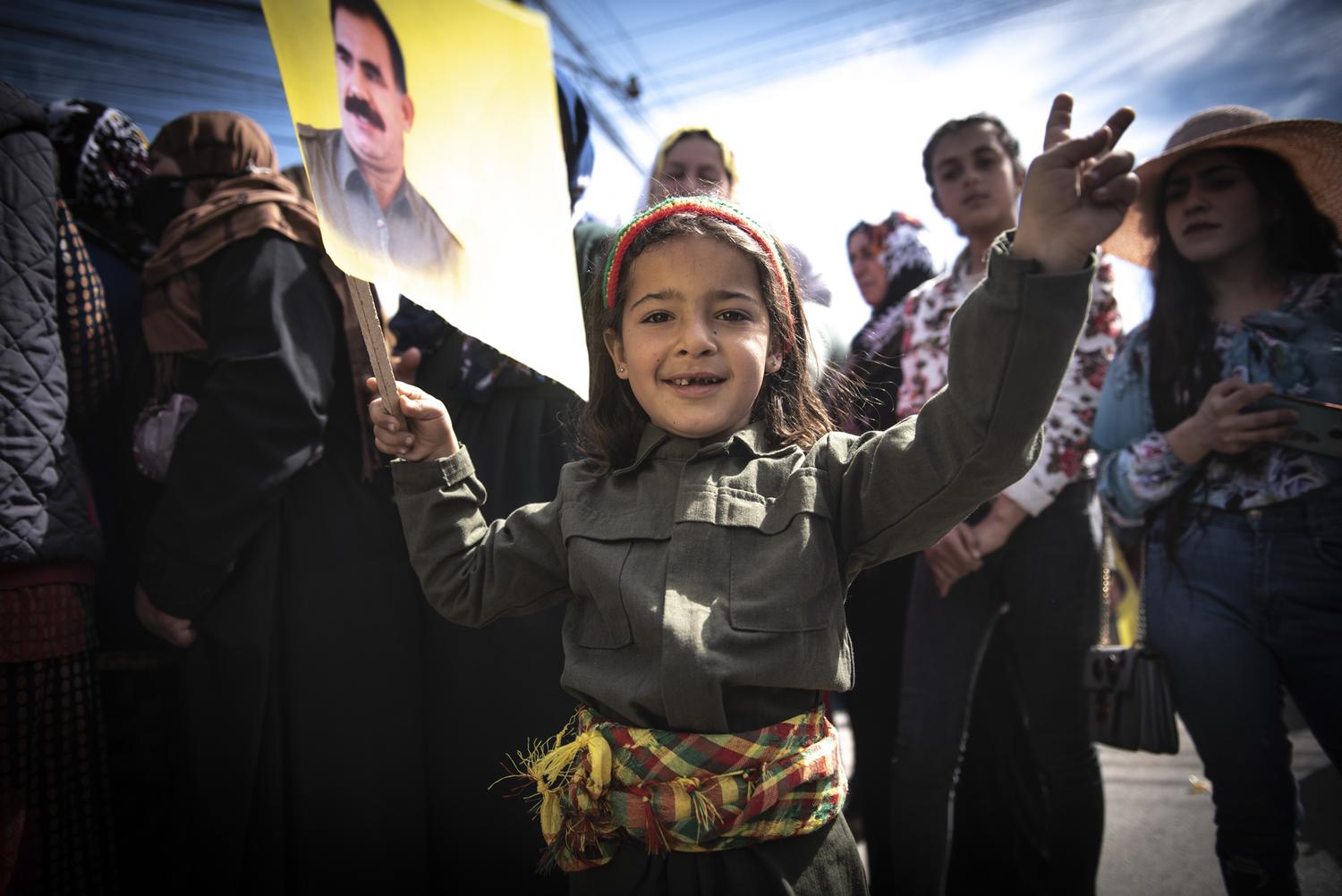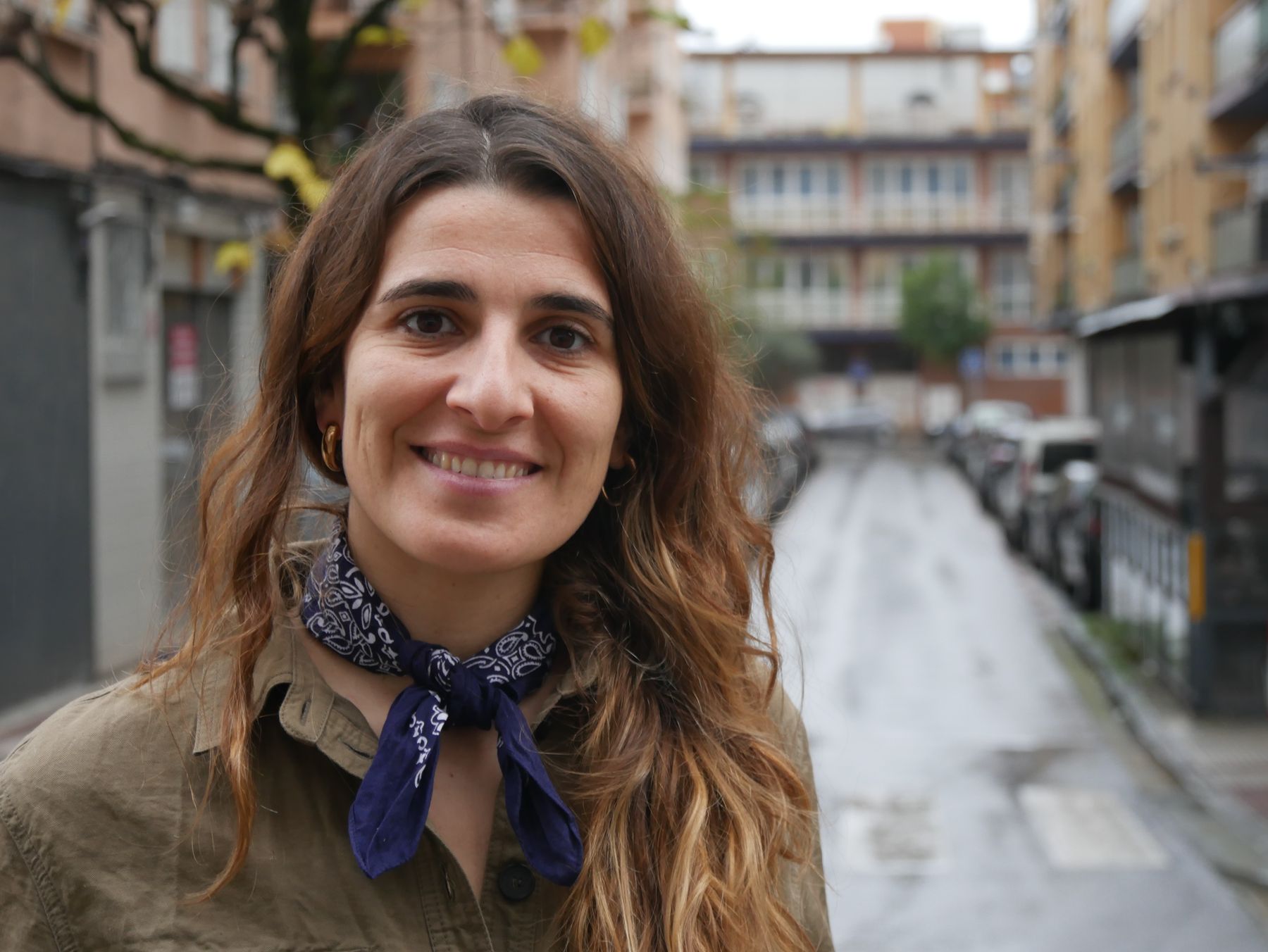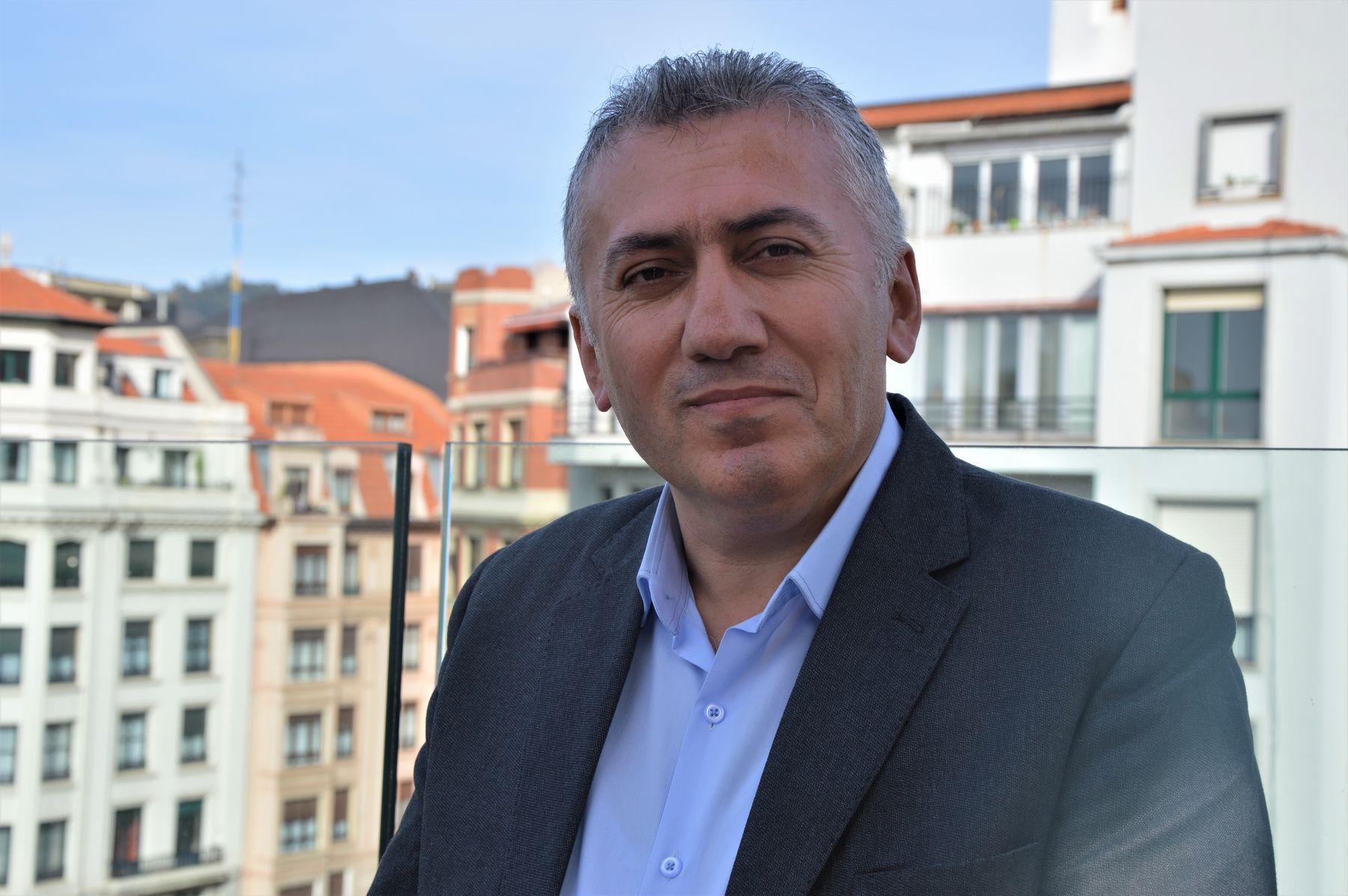"If women's rights are not defended in institutions, the revolution will have no results."
- Faiza Abdi Kobane is the President of the Basque Parliament in the Kurdish canton, and in his guest house he welcomed the delegation of Durango. She is a close, warm and cheerful woman. He has travelled around the world, visited the Soviet Union and the Spanish State, among other places. Before the war he lived in the modern cities of Syria, now he works full on Rojava: “I don’t miss anything, there is humanity everywhere in Koban.”

What is your role in the administration of Kurds?
I am President of the Women’s Legislative Council and in the area of Kobane we establish laws. This is the first time that the citizens of Euskal Herria have ruled in our territory, and we are in need of creating standards. We need to build the foundations for the implementation of the new system. That has been our greatest obligation since the Regime left, we have had to organise everything for the people.
How was the legislative body formed?In 2013 the
mandate of our people in the area began for the first time and we held elections in each town, as well as the disengagement of Kobane in the departments of East, South and West. And in the middle, the city of Kobane. Elections and councils were held in each area; the Kobane Council. All of this we did in 2013.
We started the Council on the basis of the results of the 2013 elections and elected 61 people. I was among them and then they decided that I would be president, together with a man. After four years, we will have to make new elections. If conditions allow us, of course.
What is the law-making process?
First of all, we detect the problems that the people have. For example, in traffic. After researching the topic, we held meetings and compared the results. Once the law has been drafted, we review it three times. After that, it is established by our ministries and worked together with associations and the commons. Lawyers are also among them to help us.
Is it regulated in all areas?There are issues
that do not need law, but there are others that are fundamental, in which we develop rules, traffic, health, etc. For example, we've created laws for women. This has brought us difficulties, because it is a new reality for society, but for us it is essential. There are also problems in meetings, as some men refuse to accept them.
For example, in the Council itself, five party representatives, not of society, but of the parties, argued that it was a new system and that they were afraid that these laws would be catastrophic. We held three meetings of the Legislative Council and met with many people in society; with citizenship, with the feminist organization Kongreya Star… We visited the whole area and tried to convince everyone, although with some we did not succeed, with women and men. However, I will say that it was a victory for us that most people agreed to implement those laws. However, there have been difficulties in implementing it. We've noticed this all the time, it's not easy to change people's customs. However, they are gradually becoming common laws, among many other rules, and that has been a great step forward for us.
How does the autonomy of the commons combine with the laws? Do they collide?
We prepare it before any law is enforced. For example, some, like women's law, collide with community customs, but we do research, we do great meetings to explain everything to people, we communicate and we're in touch. We are trying to convince everybody that there are laws for the general benefit. But if they're not, if they're not laws of general interest and they collide with people, we delay them or we don't set them up.
There are obstacles, but we have understood what our obligation is: After the destruction of Kobane, develop laws to help citizens; build houses, repair cars… If we have something to do about it, we will.
How have you created the law of women and how have you developed it?
The law of women is linked to society itself. Women are immersed in all kinds of social spheres. We have learned and researched the revolutions, for example the Soviet one. The women participated in the protest, but at the end they returned home. We believe that we have to do something on our own, as women, so as not to go home after the revolution.
Women have suffered more than men. We've lost husbands, children, homes -- everything. I can assure you that several generations have also lost their future. If after the revolution we do not support our rights in the institutions, what have we gained? We have to be part of the revolution, step by step, and put our rights into practice. Firstly, in our bases, that is why we have a system of two presidents, that of women and that of men. Women must be present in all areas: economic, political, teaching, health care... as well as in YPG (People's Self-Defense Units) and YPJ (Women's Self-Defense Units).
If we do not support our rights in the institutions, the revolution will yield no results. If there were no laws, we couldn't socialize them. That's what we say among women who are political or feminists. The foundations are not sufficient, they need to be disseminated in society. With that idea, we started to develop women's law.

What are the most relevant articles of this law?
It has 30 points and they're all important. One is no more essential than the other, because the goal of all is to achieve equality from the point of view of social justice. All points are complementary.
But some may be eye-catching to the citizens of the West. For example, against polygamy.
Indeed, these laws also exist in Europe, men cannot marry more than one woman. Our ultimate goal is to achieve equality between men and women.
That's why our laws ensure that women can get divorced, that before only men had that right, it's totally new. Now single or divorced women can have a family, and that's important to us. In addition, when the woman separates, the children have to stay with her.
Girls who are not 18 cannot marry. If a girl gets married at the age of 15 or 14, she stops her father. For us, both boys and girls have to have the opportunity to learn. If this is not guaranteed, families are punished. And of course, they can't force a young woman to marry.
At the same time, those who marry have to pay half of what they buy for home, what men used to do. In this way, once they are distributed, each one will take its own heritage. In addition, in the event of the death of the woman or husband, the couple must wait six months to remarry in order to show respect.
On the other hand, it is customary in our society that if a woman has no children, one man has the right to marry another, but now our laws prohibit him. However, if a man marries, he will be punished with three months ' imprisonment.
The administration has begun negotiations with the Syrian Regime. Where is the law of women?
We are separated by many themes: social, energy, health, army... In any event, in the future of Syria, a new legislative body will have to be set up to draft a new Constitution, in which the Kurds, Arabs and other communities living in Syria are represented. Consequently, new laws will apply, not ours, not yours. Until this happens, we have the right to use in our territory the rules we create.
The Syrian Regime has no women’s law, but if you read its Constitution, you talk about women’s equality. That's a theory, if you look at the practice, there's nothing like that. On the contrary, we develop laws to the extent that we have the capacity to implement them.
The political future of Syria is not clear. I tell you that we will fight for the law of women, as women, not as Kurds or Arabs. Syrian women must fight and resist in order to guarantee our rights in the Syria of the future.
Turkish helicopters and fighter aircraft cover the sky in the Kurdish area in northern Iraq. The Turkish Air Force has bombed 381 sites in the major military operation in recent weeks in the Kurdistan Autonomous Region (DRC). The Turkish Ministry of Defence has stated that "the... [+]
Urtzi Urrutikoetxea nazioarteko kazetariarekin mintzatu gara Radio Kobanen, iaz idatzitako Kurdistan-Argi bat ekialde hurbilean liburuari buruz. Testuak azken urteetako gertakizunei erreparatzen die, eta atzerago ere begiratzen du herri kurduaren egoera politikoa eta... [+]









